We take a look at the reactions coming from various chief ministers over Centre's proposed move to establish the National Counter-Terrorism Centre, who gathered to discuss it in New Delhi on Saturday.
Opposing the National Counter Terrorism Centre tooth and nail, Tamil Nadu Chief Minister J Jayalalithaa on Saturday accused the Centre of taking the country towards "autocracy" and demanded that a sub-committee of chief ministers be set up to go into the proposed body.
Launching an all-round attack on the Union home ministry headed by her bete noire P Chidambaram, she alleged that Tamil Nadu was being shown "utter contempt" by the Centre which did not even send a copy of the order setting up the National Counter-Terrorism Centre.
Speaking at the chief ministers' conference chaired by Prime Minister Manmohan Singh in New Delhi, the chief minister said the proposed NCTC needs a "total overhaul" and suggested setting up of a smaller sub-committee of chief ministers.
Also Read: NCTC not a Centre vs. states battle, says PM
"The NCTC, as has now been notified, should be kept in abeyance, as already advocated by me in my letter to the Hon'ble Prime Minister earlier, till the sub-committee of chief ministers gives its report," she said."As a matter of fact, any discussion on NCTC is infructuous as long as the notification of NCTC is in force," Jayalalithaa said.
Noting that counter terrorism is a serious matter and any mechanism that is developed should take into account the views of all the stake holders, she said there cannot be one nodal centre sitting in the Ministry of Home Affairs, whose nod is required before any counter terrorist response is undertaken.
"The way things are evolving with the creation of the NIA and NCTC and the proposed amendments to the RPF Act and the BSF Act, we seem to be headed towards an autocracy consisting of a government of the Centre, by the Centre, for the Centre," she said.
Jayalalithaa also said the Centre should "concentrate on setting its own house" in order rather than spending time advising the state governments on principles of administration.
Please ...
'Centre behaving like Viceroys of yore'
Image: Gujarat CM Narendra ModiAccusing the Centre of behaving like "Viceroys of yore", Gujarat Chief Minister Narendra Modi on Saturday said constitution of National Counter Terrorism Centre is a conscious strategy to cast the Centre as an "omnipresent" ruler with states portrayed as dependent vassals.
Underlining that the fight against terror requires clear vision and a strong political will, Modi said there was a need to carry along all constituents of federal polity and build a conscious view in finalising the strategy to fight it.
"Piecemeal approach with disjointed efforts will not lead us to the desired goal. Without comprehensively reviewing our past efforts and actions we would go on creating agencies and organisations and yet fail to achieve the purpose," Modi said.
He accused the Centre of changing the "well-defined and constitutionally mandated" boundaries of Centre-state relations and said there was a disturbing sequence of events in the recent past which revealed "centralists and autocratic mindset that militates against all canons of federalism."
"Be it proposed amendments to the Railway Protection Act, the Border Security Force Act, and the Limited competitive Examination issue and so on, the Union Government has behaved in a manner which reminds us of Viceroys of yore," he said.
He said NCTC may look like a hasty and ill-conceived move but in the backdrop of recent events in our "body-politic" assumes significance as a conscious strategy to pursue "certain hidden goal".
"The assertions and assumptions on which the NCTC has been crafted, casts the Central government in the role of omnipresent, omniscient ruler with the states portrayed like dependent vassals, belittling the states which are today the real engines of India's progress," he said.
Modi urged the Centre to "come to terms with current political realities and change its mindset" of seeking to capture political space through devious executive mechanisms."
'Institutions like NCTC upset federal structure'
Image: West Bengal CM Mamata BanerjeeSlamming the Centre for taking a unilateral decision on formation of National Counter Terrorism Centre, key United Progressive Alliance ally and West Bengal Chief Minister Mamata Banerjee on Saturday said such institutions "upset" the federal structure of the country and was "not acceptable" to the state.
She said setting up of institutions like National Counter Terrorism Centre with the proposed powers of arrest and seizure upsets the federal structure of the country and strongly urged the central government to withdraw order on its formation.
"It is unfortunate that in utter disregard to these federal principles, the NCTC was set up by an executive order dated February 3, 2012 of the Union home ministry without adequate consultations with the states.
"These kind of unilateral steps of the Union government in matters which fall within the jurisdictions of the states only increases the trust-deficit between the Centre and states," Mamata said in a especially convened meeting of chief ministers on the constitution of NCTC in New Delhi.
Mamata said setting up of an institutions like the NCTC with the proposed powers of arrest, search and seizure "greatly upsets the constitutionally-mandated federal structure of the country by infringing on the power of the states".
According to an order issued by Union home ministry, the NCTC will have three divisions responsible for collection and dissemination of information, analysis and operations and will be placed within the Intelligence Bureau.
"The IB is, for valid reasons, a secret intelligence organisation, without legislative accountability. There is, therefore, a danger of grave misuse of the powers of arrest, search and seizures given to the IB through the NCTC.
"A central intelligence agency with unbridled powers of search, seizure and arrest, without the consent or knowledge of the state governments is not acceptable to us," she said.
Taking the opportunity, the Trinamool Congress chief demanded special dispensation of funds and other logistic support for the state to equip it with modernised police force and strong intelligence agencies.
"The resources at the disposal of the state government are inadequate to take care of the problems in the border areas, inaccessible regions, Left Wing Extremism affected areas and riverine and coastal regions.
"There are serious infrastructural deficiencies that have accumulated over several years of neglect in regard to communication, roads, vehicles, equipments, etc for the police and security forces... I would urge the Central government to grant a special allocation for West Bengal," she said.
Mamata said that the exercise of police functions should remain the prerogative of the State as enshrined in the Constitution and the well-conceived equilibrium of powers and responsibilities between the Centre and the States should not be disturbed under any circumstances.
"I would, therefore, strongly urge the Union government to withdraw the order dated February 3, 2012 issued by the Ministry of Home Affairs for setting up of NCTC," the West Bengal CM said.
'NCTC prone to gross misuse'
Image: Bihar CM Nitish KumarStrongly opposing the Centre's plan for setting up an NCTC, Bihar Chief Minister Nitish Kumar today said it "violates" the principle of federalism and the structure adopted for it suffers from "serious and basic flaws".
Referring to Emergency days, Kumar said that if such powers are given to a secret intelligence agency of the Central government, they will remain prone to misuse against political rivals and asked the government to immediately withdraw it.
"One does not have to go far back in history to recall that eminent political leaders were branded as threats to national security and were put behind bars during the emergency of 1975-77," Kumar said.
He raised several issues related to jurisdiction, accountability and power to investigate that the Centre proposes to vest in the NCTC and said that it will be prone to gross misuse.
"I am disturbed to see the sacrosanct principle of federalism being violated in course of Centre's anti-terrorism onslaught. The order issued to set up NCTC also suffers from several legal and procedural defects," he said, addressing a meeting of chief ministers on the constitution of NCTC in New Delhi.
Holding that excessive interference from Centre in matters of day-to-day governance is against the spirit of the Constitution, Kumar said the significant area of control of law and order and policing left with the states is now increasingly under attack from the Centre and "NCTC is the latest instrument of interference in this context".
Noting that it has been an established practice and sacrosanct principle all over world that secret intelligence agencies are not given powers to arrest, he said, adding that, "None of the post-independence governments did so till date."
'NCTC against federal structure of Constitution'
Image: Chhattisgarh CM Raman SinghOpposing the formation of NCTC, Chhattisgarh Chief Minister Raman Singh on Saturday said it was against the federal structure of the Constitution.
"Our Constitution has cooperation and coordination-based federalism, but with the NCTC notification, I feel that it is being changed into a sub-ordination-based federalism," the chief minister of the BJP-ruled state said.
He also cited lack of clarity on some of the provisions on the NCTC circulated through an office memorandum by the home ministry recently to states and suggested changes in them.
Noting that terrorism directly affects national security, unity and integrity, he said both Parliament and states can make laws to act against terrorism.
"It is, therefore, necessary to see whether any existing law allows inclusion of subjects, which have been proposed in the notification of NCTC, under the purview of the Union executive," the CM said and asked the Centre to suitably amend them to avoid any legal problems.
On the contentious issue of granting powers of arrest, search and seizure to the officers of NCTC, Singh said under Section 25 of the Unlawful Activities (Prevention) Act-1967, there is a provision for the approval of Director General of Police and of giving information to the designated authority within 48 hours.
"However, by giving powers of arrest, search and seizure, the new arrangement for NCTC seems to have overlooked the provision of section 25," he said.
Singh said Chhattisgarh feels that while there is a need for a separate agency at the national level for gathering information, maintaining and analysing data and exchanging and reviewing these data with various states; its work should be limited to ensure coordination, cooperation and synergy, instead of diluting powers of state government's agencies.
Menwhile, speaking to the media on the sidelines of the meeting, Raman Singh said if suggestions made by the state governments are incorporated and the proposed NCTC is suitably amended, he was open to supporting its formation.
"We have made certain suggestions for amendment in the NCTC. All the three powers -- intelligence gathering, operations and full control over the civil services -- by NCTC cannot be accepted. If NCTC is suitably amended, we can agree to support it," he said.
'NCTC should not be under secret org like IB'
Image: Odisha CM Naveen PatnaikNo democratic country has given wide ranging powers to their secret intelligence agencies and hence the NCTC should not be placed under the Intelligence Bureau, Odisha Chief Minister Naveen Patnaik today said.
Patnaik added that the body in its present form is not acceptable to his state.
"I do appreciate that there is a need for an organization at the central level to tackle terrorism and left wing extremism. However, the NCTC in its present form is simply not acceptable", he said.
"Firstly, such an organisation should not be part of a secret intelligence agency, the IB. No other democratic country has given such wide ranging powers to their secret intelligence agencies as has been envisaged in the case of the NCTC. The job of an intelligence agency is to collect intelligence only. Therefore, the NCTC should not be a part of the IB. It can be with a separate agency like the National Investigation Agency," he said.
Patnaik also said the powers proposed to be vested with the NCTC will "certainly undermine the authority of the state governments and vitiate our federal rights".
The chief minister said that any hasty decision on the creation and operationalisation of the NCTC will erode the federal structure of the country.
"I do hope that the government of India will respect the concerns of the states while finalising the creation of the NCTC. The creation of the Republic of India in its present form is a result of years of sacrifice and hard work by the founding fathers of our nation", the chief minister said.
"They have very wisely created this federal structure to keep the country united against all divisive forces and fissiparous tendencies. We should not erode this structure by taking any hasty decision which undermines the federal rights of the states", he said.
The Odisha CM contended that it should be made mandatory for the NCTC to intimate the state director general of police in advance before undertaking any operation.
"For matters of specific concern to the state, prior concurrence of the state government should be made mandatory and normally they should be taken up on the request of the state government giving due regard to the federal rights of the state", he stressed.
'NCTC could be misused for political purposes'
Image: Madhya Pradesh CM Shivraj Singh ChouhanAccusing the Union government of attempting to centralise police powers, Madhya Pradesh Chief Minister Shivraj Singh Chouhan today said the NCTC could be misused for "political purposes".
Chouhan said the NCTC, in its present form, is against the federal structure laid down in the Constitution and demanded that all stakeholders be treated equally as team members for success in fighting terrorism.
"Numerous security analysts have opined that NCTC under the Intelligence Bureau is prone to political misuse. This contention appears to be true as NCTC in proposed format is likely to be misused for political purposes.
"Security experts have also visualised that by carrying out operations on its own, NCTC will get bogged down in court cases and human right issues. The above contentions are real, based on the past experiences and therefore, needs to be resolved," Chouhan said at the meeting of CMs in New Delhi.
"I do not consider the provisions for creation of NCTC to be in accordance with the federal structure enshrined in our Constitution," the MP chief minister said.
Chouhan also hit out against the central government for neglecting the states in framing terror related policies.
"On one side, government of India emphasises on coordination among state and central security agencies and on other hand, state authorities are overlooked in deciding counter terror policies. Continuous neglect of state agencies in this direction shows the growing tendency of centralization..no consultation was done with state agencies in amendment of UAPA in 2008 or while creating the National Investigation Agency.
"Order on NCTC is another step taken in this sequence. Proposed amendments in BSF and RPF Act are also an example of attempts of centralisation of police powers by centre," he said.
Chouhan said that in "no case" NCTC should launch any operations without taking into confidence the state agencies.
"Order for setting up of NCTC mandates state agency to provide intelligence to NCTC which in turn, after analysis will decide whether to carry out operations on its own or direct other agencies for requisite response.
"This very provision is not in unison with the concept of coordination among central and state agencies. All stakeholders shall be treated equally as a team member for success in fighting terrorism," he said.
Chouhan reasoned that the proposed joint action by the NCTC with state agencies will contradict the effort of the agencies which will eventually benefit terrorists in courts.
'NCTC provisions as stringent as AFSPA'
Image: Jammu and Kashmir CM Omar AbdullahCongress ally National Conference today articulated its reservations over the Centre's NCTC stating the present form makes it as stringent as the controversial Armed Forces Special Powers Act.
Turning down the proposal in a polite manner, Jammu and Kashmir Chief Minister Omar Abdullah also pointed out that the issues raised during the meeting of various state officials chaired by Union Home Secretary R K Singh last month have not been incorporated in the new draft circulated by the Centre.
Omar said the proposal in the NCTC for handing over the arrested persons and seized material to the nearest police station "as soon as possible" makes it "almost as stringent as the existing provision available under AFSPA."
"This is likely to have far reaching consequences in our state which is politically sensitive. We have been advocating for revocation of AFSPA and it has been welcomed by all shades of people in the state", he said.
Therefore, "mandating the NCTC with such powers may run counter to our efforts towards the removal of AFSPA at least from certain areas, and can generate avoidable criticism", Abdullah said.
Omar suggested that the NCTC should assume the role of a coordinating agency, instead of controlling or prescribing counter terrorism priorities for each stakeholder.
The power of arrest and search should remain with the local police only, the chief minister said.
'NCTC infringes upon rights of state govts'
Image: UP CM Akhilesh YadavWhile noting that the Centre and the states have to make unified efforts to tackle terrorism, Uttar Pradesh Chief Minister Akhilesh Yadav on Saturday said the standard operating procedures of the proposed NCTC "infringe" upon the rights of the state governments.
"It is necessary for any operational action that state government remains informed and it is conducted with advice and active support of the local police and it has the required experience for such situation," Akhilesh said in his speech which was tabled by UP Gram Panchayat minister Blaram Yadav in the absence of the chief minister.
He said the present form of NCTC proposed by the Centre is not in lines with the principles of involvement of the state machinery in undertaking such operations.
"I demand a rethink on the proposed system. As of now, NCTC can undertake any operation in a state without informing the state government using special forces like the NSG. Such provisions can lead to confusing situation in issues related to law and order. The possibility of its misuse cannot be ruled out," the UP chief minister said.
Referring to the traditional system of central forces taking consent of the state governments before undertaking operations, he said the states have the "operational control" in such situations. "It would be better if this principle is followed in the backdrop of the NCTC," he said.
Suggesting the proposed NCTC should strengthen itself in intelligence gathering and its analysis, Yadav said the "actionable intelligence" should be used by states to take action. "Whenever the states find it important, they can take support of the NCTC," he said.
He said the standard operating procedure with regard to 'operational division' of NCTC was unacceptable as the director of the proposed body has been given an alternative that he can carry out arrest, search and seizure action without even informing state DGP and ATS chief.
'NCTC will strain Centre-state ties'
Image: Himachal Pradesh CM Prem Kumar DhumalHimachal Pradesh today strongly opposed the setting up of the National Counter Terrorism Centre saying the federal structure of the country is sought to be weakened under its garb and such attempts to encroach on states' powers will strain relations with the Centre.
Speaking at the chief ministers conference on NCTC in New Delhi on Saturday, Himachal chief minister Prem Kumar Dhumal questioned the Centre on misuse of the proposed NCTC for harassing political adversaries and branding them as anti-national.
Going by the concerns raised by various states on NCTC, Dhumal said, it "shows that it is not the need for an appropriate response mechanism that is being questioned, but the manner and the form in which it is being sought to be put in place".
"Not only has the Union government gone about giving shape to the proposed NCTC unilaterally, but it has also, unfortunately, tried to run roughshod over the interests of states in the process", Dhumal said.
Attacking Home Minister P Chidambaram for claiming that terrorism was a shared responsibility, Dhumal questioned, "then why is the federal structure being sought to be weakened in the garb of setting up the NCTC?"
'Proposed NCTC interferes in states' domain'
Image: Karnataka CM Sadananda GowdaKarnataka Chief Minister Sadananda Gowda on Saturday said powers of the proposed NCTC "undoubtedly" amount to interference in the domain of the state governments.
Speaking at the chief ministers' conference on National Counter Terrorism Centre, Gowda said while in the US there are federal crimes where agencies like FBI can directly intervene India has a uniform penal code yet its implementation is with the state governments.
"We are apprehensive that officers of NCTC could first arrest, search and seize and simply inform the local police officers stating that they were authorised to do so by the director NCTC. This has to be avoided," he said.
He said NCTC operations will leave no freedom or discretion to asses the positions taken by NCTC officers as they will be bound to initiate proceedings under CrPC once they have been handed over custody of the accused.
"These provisions are disabling the state police officers and amount to directly interfering into legitimate domain of the state government and the state police. This must be prevented," Gowda said.
He said the officers of NCTC can itself set up inter-state intelligence support teams which will have adverse effect on the morale and motivation of the state police officers.
'NCTC shows Centre's lack of trust on state govts'
Image: Tripura CM Manik SarkarMixed response was evoked from the North Eastern states on Saturday by the Union government's proposed NCTC with some of them suggesting riders in it to control misuse of powers and others rejecting the move as "encroachment".
Criticising the Centre, Tripura Chief Minister Manik Sarkar expressed his anguished over several steps, including notification of NCTC and proposed amendments to the RPF and BSF Acts, being taken by the Central Government with serious implication on federalism and tantamount to encroachment upon the rights of the States.
"The concern expressed by several state governments on the tendency of the Central government to invade into the functional domain of state governments must be looked into seriously", he said.
Sarkar strongly opposed the vesting of the National Counter Terrorism Centre with powers to arrest and seize without informing the states.
He warned that "arming an intelligence body, which is not accountable to Parliament or courts, with such powers will have undesired consequences which must be considered dispassionately".
The CM accused the Centre of showing lack of trust on the state governments and ability of the state police by allowing its proposed anti-terrorism wing "to play the pivotal role of tackling the menace of terrorism".
Sarkar said the mandate of NCTC should be limited to only collection, collation and analysis of intelligence by coordinating with various intelligence agencies to avoid misuse or abuse of power.
'Centre's latest assault on federalism'
Image: Punjab CM Parkash Singh BadalOpposing the NCTC on practical, legal and constitutional grounds, Punjab Chief Minister Parkash Singh Badal on Saturday sought a relook at the Constitution instead and suggested setting up of a new constituency assembly for the purpose.
Speaking at the meeting of chief ministers on the issue of National Counter Terrorism Centre, Badal said, "A time has come to take a second look at the Constitution to bring it in tune with the changing realities and needs of the changing times."
"We have been advocating a restructuring of the Constitution to make it genuinely federal. I urge the government of India to consider setting up of a new Constituency Assembly for this purpose", he said.
On NCTC, he said, "It is the latest example of Centre's assault on federalism and reminds one of the days of Emergency and we cannot accept it".
"It appears that the Centre has very systematically taken a series of decision to take away the powers of the states under one excuse or the other", the Punjab Chief Minister asserted.

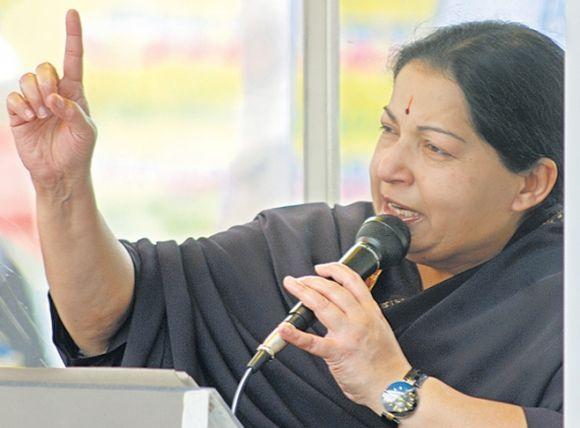
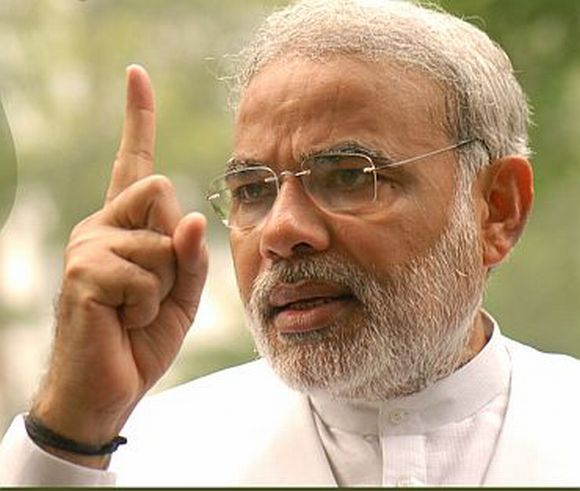
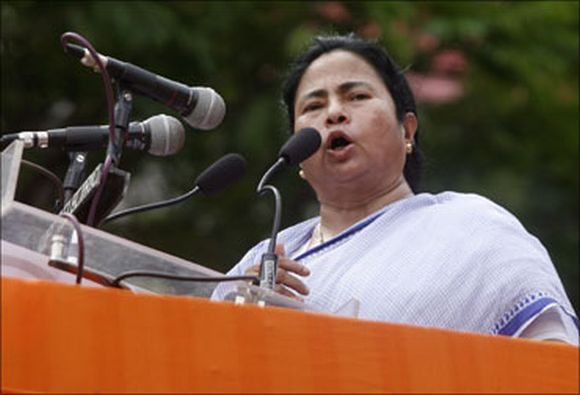
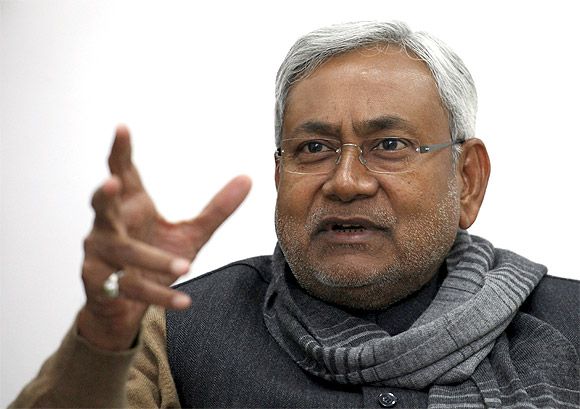
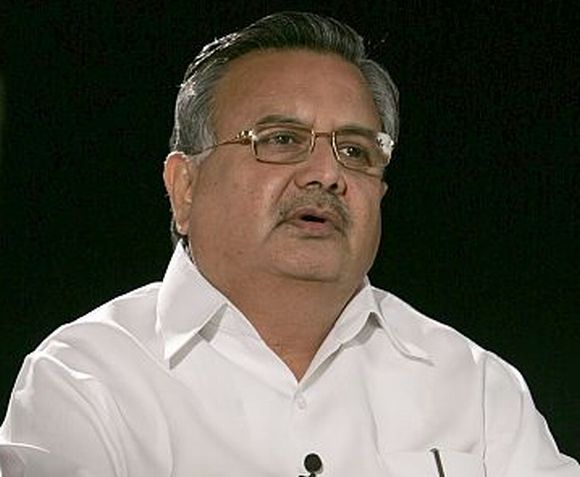
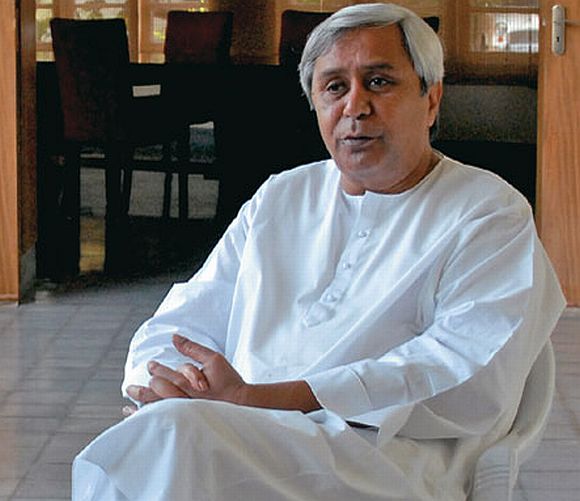
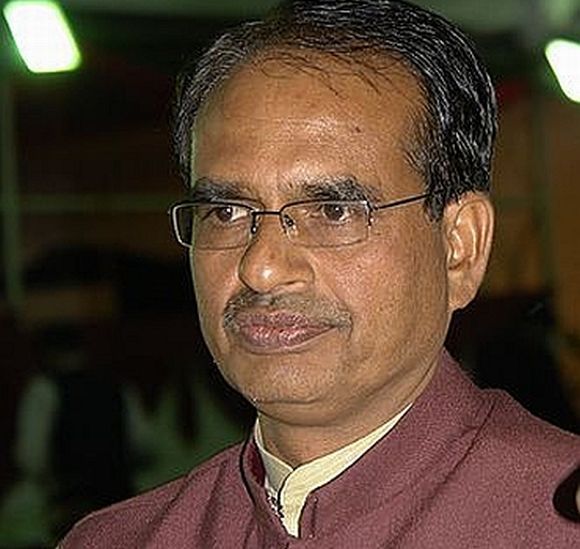
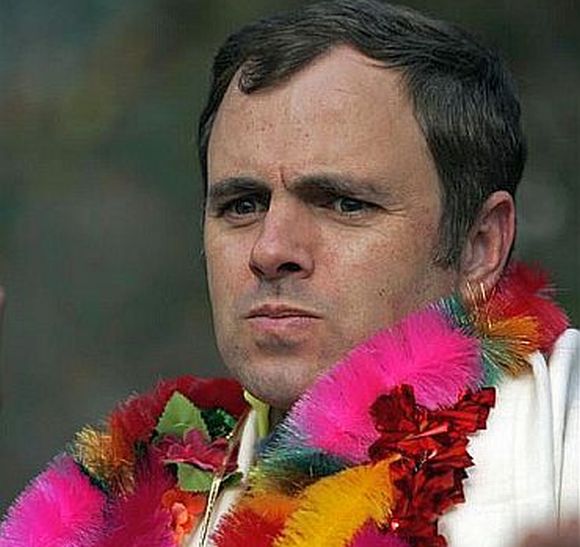
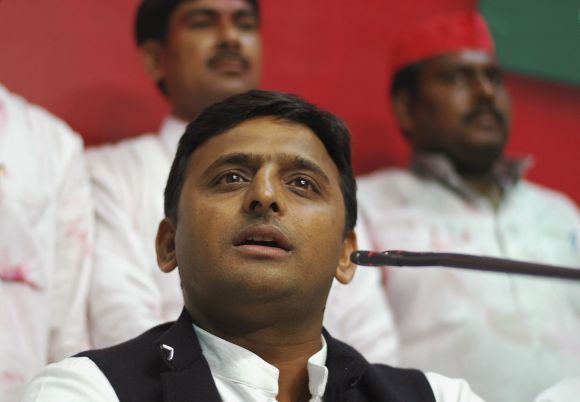
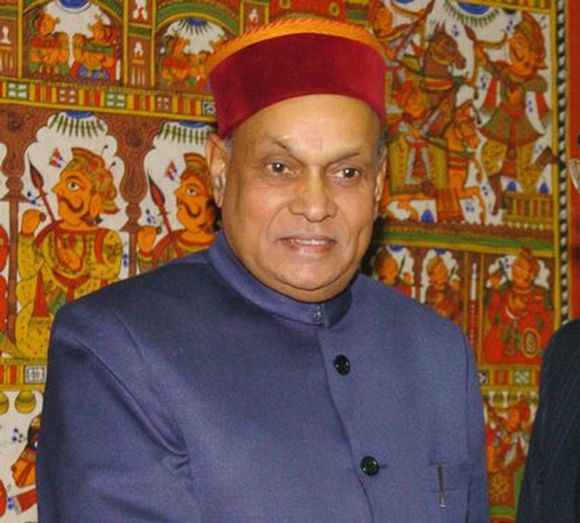
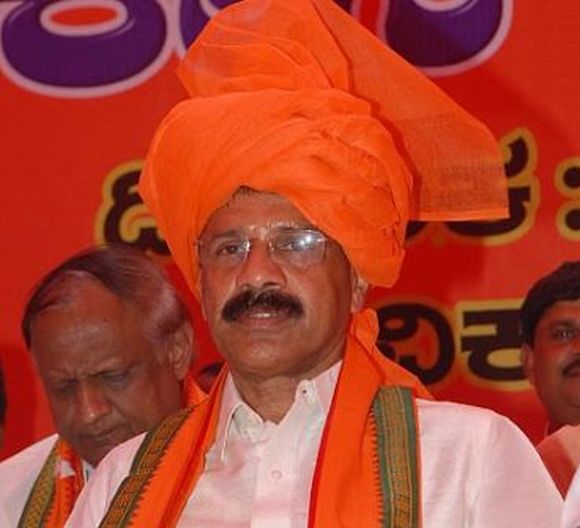
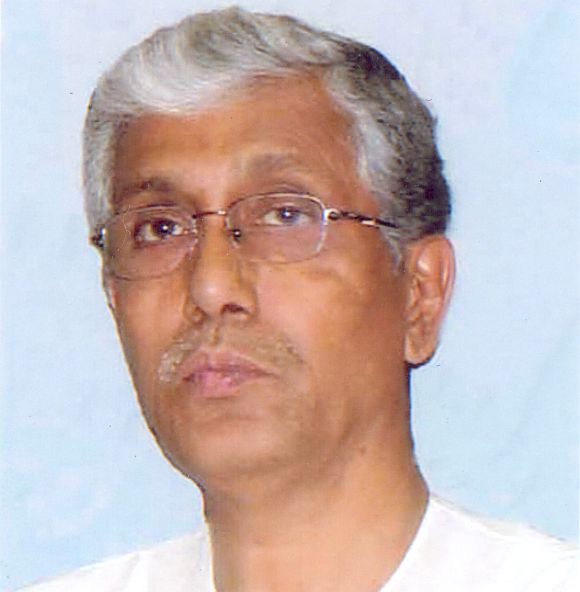
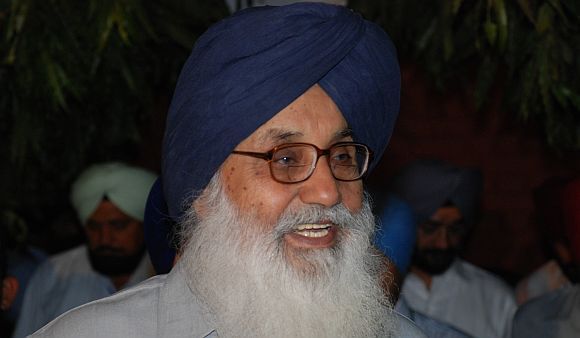
article